Web: http://www.laramaest.org/vine/
WHAT
“Social Vulnerability and its Intersections: The role of gender in a comparative perspective” (VINE with clickable link: http://cordis.europa.eu/project/rcn/208611_en.html) is a research project funded under the Marie Skłodowska-Curie Fellowship program, promoted by the European Commission to support research in the European Union and to foster career development and mobility of researchers within and beyond the Union. The general objective of VINE is to analyse how the institutional context as well as individual characteristics – as gender – affects individual risk of living in vulnerable households, from a comparative and multidimensional perspective.
WHO
Lara Maestripieri is the principal investigator of VINE and she is currently postdoc fellow at the Institute of Government and Public Policy (IGOP) at the Autonomous University of Barcelona.
WHY
The VINE project was designed to analyse the interactions between social vulnerability and different individual characteristics that might magnify exposure to it. Furthermore, the project aims to study how and in what ways individual characteristics combine to determine economic insecurity, experienced at household level. Compared to previous studies, this study is innovative in assuming gender to be the main analytical dimension when examining social vulnerability from an intersectional perspective. Social vulnerability represents a major policy challenge to the sustainability of the European social model for the Europe 2020, and VINE is intended to provide new perspectives on it, being respectful of its intrinsic gendered dimension.
HOW
The main source of information for VINE is the European Union statistics on Income and Living Conditions (EU-SILC) standard survey, and supplementary modules. The EU-SILC survey provides information on income, social exclusion, housing conditions, labour, education and health. Involving a multi-dimensional explorative analysis, and multinomial logistic regression, comparing different countries (as proxies in different institutional contexts), this analysis leads to the development of synthetic indicators of economic insecurity at the household level, which interact with specific individual social vulnerability profiles.
The six countries included in the model were selected according to their welfare regimes: a liberal country, the United Kingdom; a continental country, France; two Mediterranean countries, Italy and Spain; a socio-democratic country, Sweden; and a post-communist country, the Czech Republic. The employment patterns of women in the six countries differ, as do their social models and economic performances.
WHEN
The project started in June 2017 and it will last until May 2019.
For more information about VINE contact Lara Maestripieri (lara.maestripieri@uab.cat)
Follow VINE on twitter: #MSCAvine










